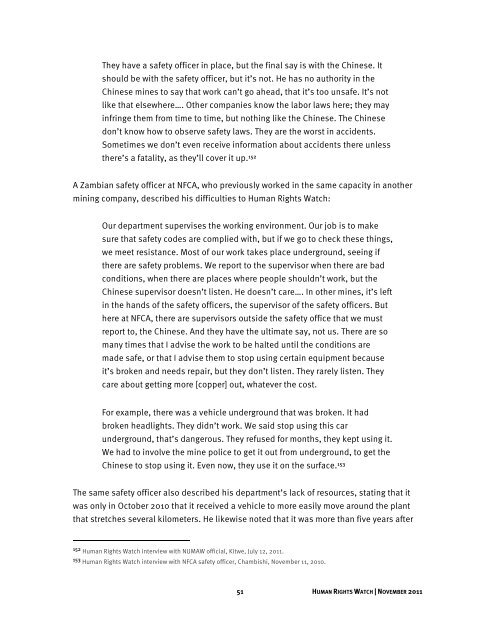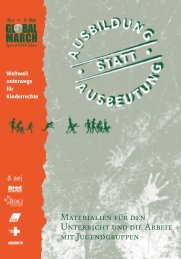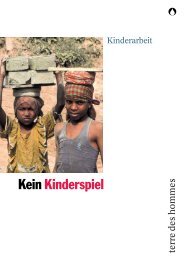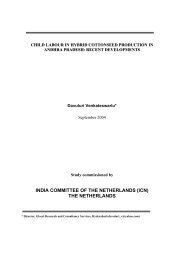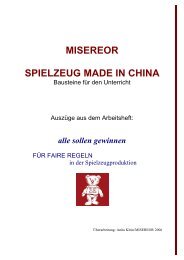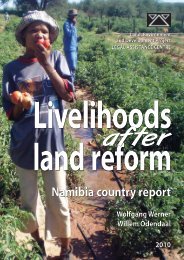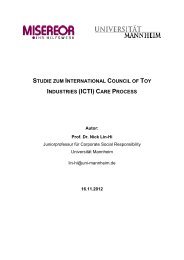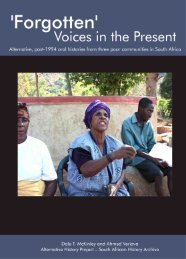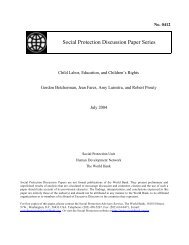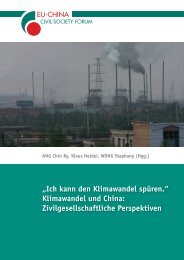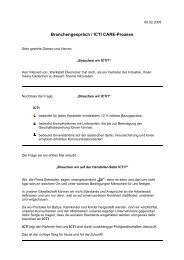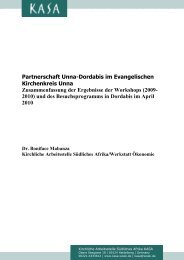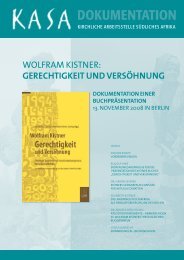“You'll Be Fired if You Refuse†- Human Rights Watch
“You'll Be Fired if You Refuse†- Human Rights Watch
“You'll Be Fired if You Refuse†- Human Rights Watch
Create successful ePaper yourself
Turn your PDF publications into a flip-book with our unique Google optimized e-Paper software.
They have a safety officer in place, but the final say is with the Chinese. It<br />
should be with the safety officer, but it’s not. He has no authority in the<br />
Chinese mines to say that work can’t go ahead, that it’s too unsafe. It’s not<br />
like that elsewhere…. Other companies know the labor laws here; they may<br />
infringe them from time to time, but nothing like the Chinese. The Chinese<br />
don’t know how to observe safety laws. They are the worst in accidents.<br />
Sometimes we don’t even receive information about accidents there unless<br />
there’s a fatality, as they’ll cover it up. 152<br />
A Zambian safety officer at NFCA, who previously worked in the same capacity in another<br />
mining company, described his d<strong>if</strong>ficulties to <strong>Human</strong> <strong>Rights</strong> <strong>Watch</strong>:<br />
Our department supervises the working environment. Our job is to make<br />
sure that safety codes are complied with, but <strong>if</strong> we go to check these things,<br />
we meet resistance. Most of our work takes place underground, seeing <strong>if</strong><br />
there are safety problems. We report to the supervisor when there are bad<br />
conditions, when there are places where people shouldn’t work, but the<br />
Chinese supervisor doesn’t listen. He doesn’t care…. In other mines, it’s left<br />
in the hands of the safety officers, the supervisor of the safety officers. But<br />
here at NFCA, there are supervisors outside the safety office that we must<br />
report to, the Chinese. And they have the ultimate say, not us. There are so<br />
many times that I advise the work to be halted until the conditions are<br />
made safe, or that I advise them to stop using certain equipment because<br />
it’s broken and needs repair, but they don’t listen. They rarely listen. They<br />
care about getting more [copper] out, whatever the cost.<br />
For example, there was a vehicle underground that was broken. It had<br />
broken headlights. They didn’t work. We said stop using this car<br />
underground, that’s dangerous. They refused for months, they kept using it.<br />
We had to involve the mine police to get it out from underground, to get the<br />
Chinese to stop using it. Even now, they use it on the surface. 153<br />
The same safety officer also described his department’s lack of resources, stating that it<br />
was only in October 2010 that it received a vehicle to more easily move around the plant<br />
that stretches several kilometers. He likewise noted that it was more than five years after<br />
152 <strong>Human</strong> <strong>Rights</strong> <strong>Watch</strong> interview with NUMAW official, Kitwe, July 12, 2011.<br />
153 <strong>Human</strong> <strong>Rights</strong> <strong>Watch</strong> interview with NFCA safety officer, Chambishi, November 11, 2010.<br />
51 HUMAN RIGHTS WATCH | NOVEMBER 2011


